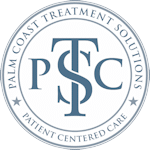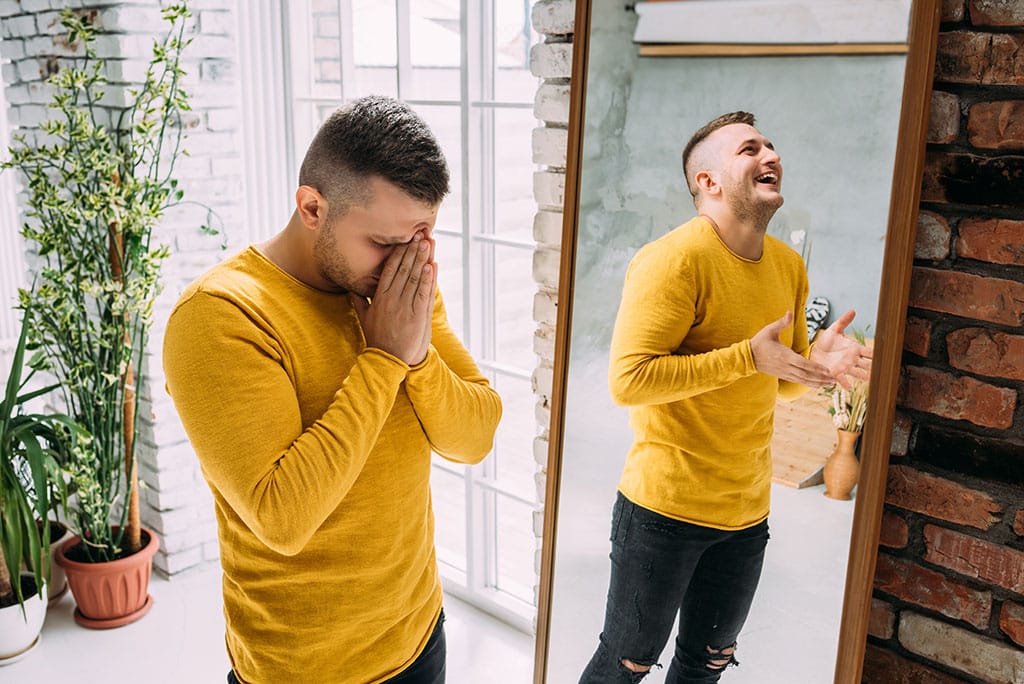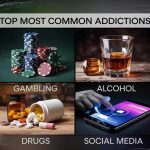Popular Post
Jump to Section
Addiction is a complex and often misunderstood condition that affects millions of people worldwide. It doesn’t discriminate based on age, gender, or background; it can encompass a wide range of substances and behaviors. This comprehensive guide will explore various types of addictions, their underlying causes, common symptoms, and effective treatments. Understanding addiction is the first step toward providing help, support, and recovery.

Different Types of Addictions
1. Substance Addictions
Substance addictions involve the abuse of various drugs or substances. Common substances of abuse include alcohol, tobacco, prescription medications, and illegal drugs like cocaine, heroin, and methamphetamine.
2. Behavioral Addictions
Behavioral addictions revolve around repetitively engaging in specific activities or behaviors despite adverse consequences.
Common behavioral addictions include:
- Gambling Addiction: A compulsive need to gamble, often resulting in financial and emotional turmoil.
- Internet and Technology Addiction: Obsessive use of the internet, social media, video games, or smartphones, leads to impaired daily functioning.
- Shopping or Buying Addiction: An excessive, uncontrollable urge to shop or buy items, often causing financial problems.
- Food Addiction: A compulsion to overeat or consume specific types of food, leading to obesity and related health issues.
- Sex and Pornography Addiction: An uncontrollable urge to engage in sexual activities or consume explicit material, which can disrupt relationships and daily life.
3. Process Addictions
Process addictions involve addiction to processes or activities that trigger the brain’s reward system. These can be closely related to behavioral addictions but are typically broader in scope.
Standard process addictions include:
- Work Addiction: An obsession with work and a compulsive need to be productive, often at the expense of personal life and well-being.
- Exercise Addiction: An unhealthy obsession with exercise and physical fitness, leading to overtraining and potential physical harm.
- Relationship or Love Addiction: A pattern of obsessively seeking love, attention, or approval from others, often leading to tumultuous relationships.
Causes of Addiction
Addiction is a complex interplay of genetic, environmental, and psychological factors.
Key Contributors to Addiction:
- Genetics: A family history of addiction can increase the likelihood of an individual developing an addiction due to genetic predisposition.
- Brain Chemistry: Substance abuse can change brain chemistry, altering reward pathways and making the person more susceptible to addiction.
- Environmental Factors: Exposure to a substance or behavior, especially during formative years, can increase the risk of addiction. Trauma, stress, and a lack of a robust support system can also contribute.
- Psychological Factors: Mental health disorders, such as depression, anxiety, or trauma, can increase the vulnerability to addiction. People may use substances or behaviors to cope with emotional pain.
- Peer Pressure: Influence from friends or social circles can lead individuals to try substances or engage in addictive behaviors.
Symptoms of Addiction
While the specific symptoms can vary depending on the type of addiction, some common signs include.
Common Signs and Symptoms of Addiction
- Cravings: A strong, persistent desire or urge to use the substance or engage in the behavior.
- Loss of Control: Difficulty controlling or cutting down on substance use or behavior, even when wanting to do so.
- Withdrawal: Experiencing physical or psychological symptoms when not using the substance or engaging in the behavior.
- Tolerance: Needing more substance or behavior to achieve the desired effect.
- Neglecting Responsibilities: Failing to fulfill work, school, or home obligations due to addiction.
- Continued Use Despite Harm: Using the substance or engaging in the behavior even when it results in negative consequences, such as health problems, relationship issues, or legal trouble.
- Loss of Interest: Decreased interest in previously enjoyed activities that do not involve the addictive substance or behavior.
Treatments for Addiction
Addiction treatment varies depending on the type and severity of the addiction but generally includes a combination of the following approaches.
Common Addiction Treatment Approaches
- Detoxification (Detox): Detox is often the first step for substance addictions. It involves the removal of the addictive substance from the body while managing withdrawal symptoms under medical supervision.
- Behavioral Therapy: Various therapeutic approaches, such as Cognitive-Behavioral Therapy (CBT), Dialectical Behavior Therapy (DBT), and Motivational Interviewing, are used to address the psychological aspects of addiction and develop coping strategies.
- Medications: In some cases, medications can assist in managing cravings and withdrawal symptoms. For example, methadone or buprenorphine is used for opioid addiction, while drugs like naltrexone can help reduce cravings for alcohol.
- Support Groups: Group therapy, such as Alcoholics Anonymous (AA) or Narcotics Anonymous (NA), provides a supportive environment for individuals in recovery to share their experiences and seek advice.
- Individual Counseling: One-on-one counseling sessions with a therapist or counselor can help individuals address the root causes of their addiction and develop personalized strategies for recovery.
- Lifestyle Changes: Learning healthier habits, stress management techniques, and relapse prevention strategies are essential to addiction recovery.
- Family Therapy: In many cases, addiction affects the individual and their family. Family therapy can help address these dynamics and support all members involved.
- Aftercare and Relapse Prevention: Ongoing support, such as outpatient counseling or sober living arrangements, can help individuals maintain their sobriety after initial treatment.
Conclusion
Addiction is a challenging and often long-term condition that affects people from all walks of life. Understanding the different types of addiction, their causes, common symptoms, and available treatments is essential for individuals struggling with addiction and their loved ones. Recovery is possible, and seeking help is a crucial first step toward a healthier, addiction-free life. Whether it’s substance abuse or a behavioral addiction, resources, and professionals are available to support those on the path to recovery. With the proper treatment and support, individuals can break free from the cycle of addiction and regain control of their lives.
Are you struggling with addiction? You’re not alone.
Addiction is a serious problem that can affect anyone, regardless of their age, gender, or background. There are many different types of addictions, including substance abuse, gambling, and eating disorders.
If you are struggling with addiction, it is important to know that there is help available. There are many treatment options available, including individual therapy, group therapy, and medication management.
This article will discuss the different types of addictions, their causes, symptoms, and treatments. By understanding addiction, you can take steps to get the help you need.
If you are struggling with addiction, please don’t hesitate to reach out to Palm Coast Treatment Solutions for help. There are many resources available to you. Never hesitate to reach out for help. The first step to get rid of addiction is communication.
- Your doctor or health insurance provider
- Local addiction treatment centers
- National organizations like the Substance Abuse and Mental Health Services Administration (SAMHSA)
Palm Coast Treatment Solutions offers substance addiction treatment programs in Orlando. Call us today at (386) 284-4151 so that our experienced addiction treatment staff can help you get rid of substance addictions.
You may also like reading:
Winning Strategies: 15 Tips to Improve Mental Health for Athletes
Contact Us
CALL US NOW
Palm Coast Treatment Centers will iron out the details for you in a manner that will make you confident in your path to sobriety. That first simple call is your ticket to making Palm Coast Treatment Centers your solution for addiction. Get the freedom from addiction that you deserve today.
Call Us Now: (386) 284-4151Updated News
LATEST POSTS
Palm Coast Recovery Solutions makes numerous media outlets available to encourage you in your recovery process. Digital media literature is approved by a licensed professional and intended to guide you in your recovery path.

Years of experience
Our leadership team has extensive experience in dual-diagnosis treatment and is ready to help those who are struggling with substance use and mental health.

Specialists
Our staff consists of many licensed addiction and mental health treatment facilitators and other staff who are ready to share their experience and their success.

Happy patients
Palm Coast Treatment Centers has helped over 2,000 people who have struggled with substance use and mental health to find road to recovery.
Contact Us
GET IN TOUCH
Reaching out to Palm Coast Treatment Centers may be the most important call of your recovery process. A caring professional is waiting for your call to be your guide to addiction-free living.
Need Help? Contact Us
Areas and Cities We Serve SUD & Mental Health Treatments in Florida
OviedoOrlandoDelandJacksonvillePort St. LucieTampaAltamonte SpringsKissimmeeSt CloudWinter GardenWinter ParkClermontMelbourneSanfordDeltonaLake MaryMount DoraLeesburgThe VillagesUnion ParkSt. AugustineDupontPort OrangeOrmond BeachHolly HillDaytona BeachEdgewaterOak HillMaytownEldoraGenevaTitusvilleChristmasPort St. JohnPort CanaveralCocoa BeachOsteenSatellite BeachPalm BayRoselandSebastianFellsmereGiffordRockledge
 info@shc.health
info@shc.health 









